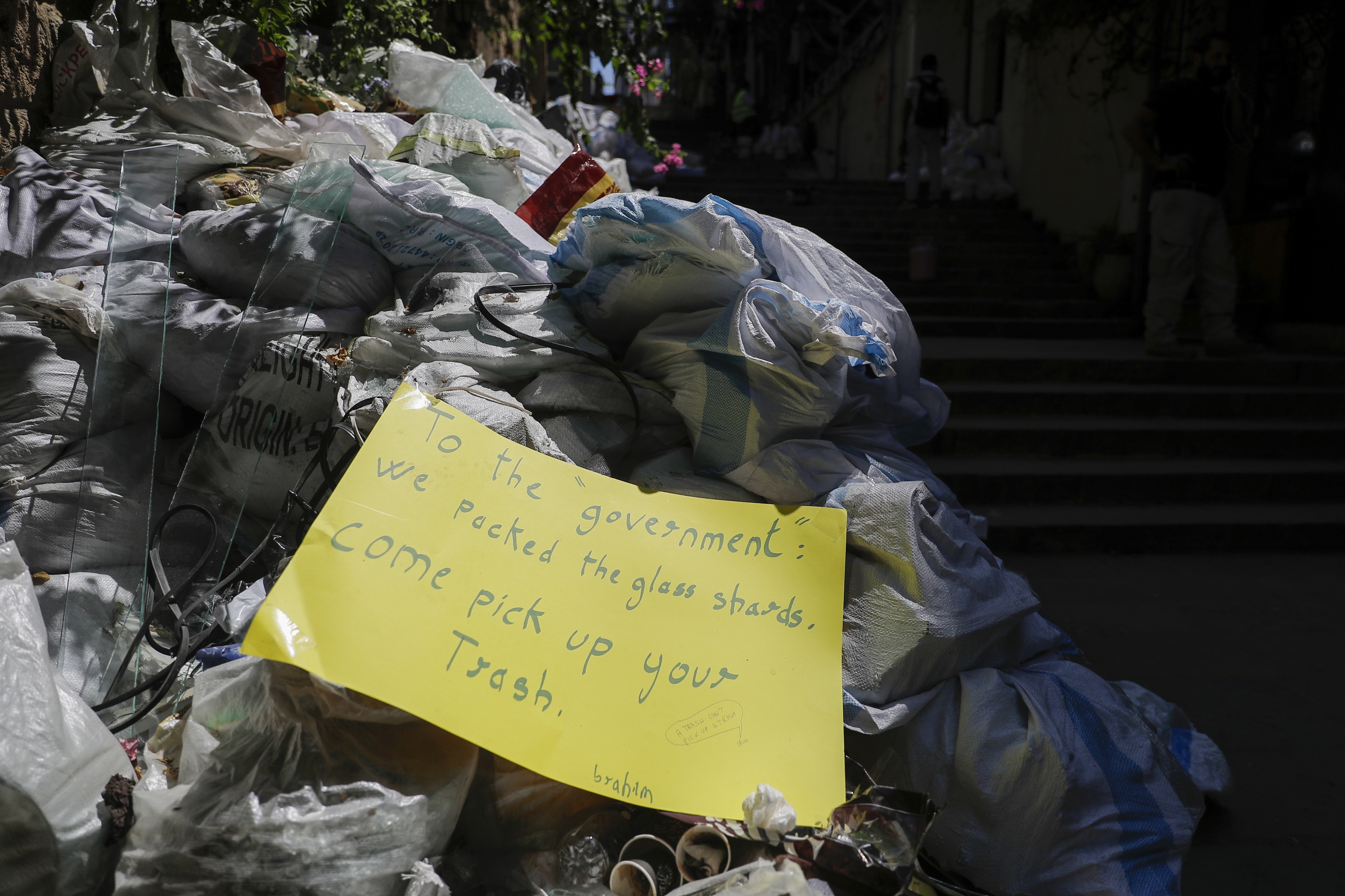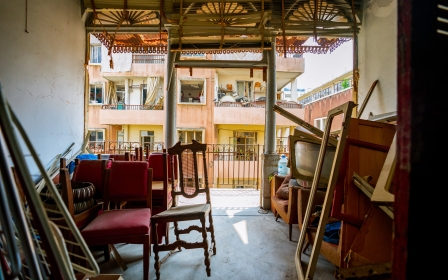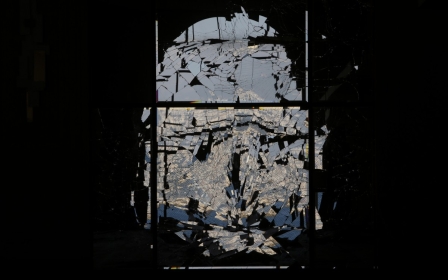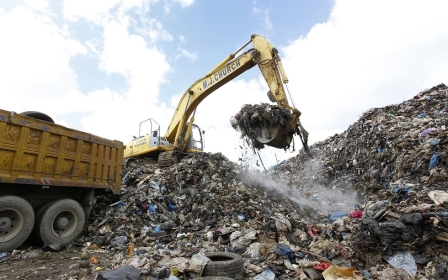Debris from Beirut explosion adds to Lebanon's rubbish crisis

Last month's port blast in Beirut has put further stress on Lebanon’s waste management infrastructure, which has been in a state of near collapse for years, Human Rights Watch (HRW) has warned.
In a report the rights groups said that the explosion has left huge amounts of debris from collapsed buildings, increasing the daily volume of waste.
The explosion, caused by some 2,750 tonnes of ammonium nitrate detonating in the Beirut port, left entire neighbourhoods devastated and around 300,000 people homeless.
The blast caused severe damage to two key sorting and recycling facilities in the Karantina and Bourj Hammoud areas in the capital, causing rubbish to pile up on street corners.
There has also been partial damage to healthcare waste storage facilities of three hospitals in Beirut, as well as waste collection and transportation equipment.
New MEE newsletter: Jerusalem Dispatch
Sign up to get the latest insights and analysis on Israel-Palestine, alongside Turkey Unpacked and other MEE newsletters
A needs assessment carried out by the World Bank Group in cooperation with the European Union and United Nations states that the cost of reconstruction and recovery of waste management facilities and infrastructure will be around $75m to $100m.
According to local Arabic media reports, the Bourj Hammoud landfill is also set to close later this month, after reaching maximum capacity, further increasing the risk of rubbish piling up.
Online, social media users have started documenting rubbish showing up on street corners, questioning what the government is doing about it.
Two photos around Hamra I took yesterday... the smell is awful and apparently there are even worse sights in other areas of Beirut!!! pic.twitter.com/z52r3LKdAf
— Nay Catina 🧬💀 (@katdotfasta) September 19, 2020
Many have also claimed that the increase of waste on streets across the country is causing unbearable smells and could pose serious health risks to nearby residents.
Hamra has been filled w/ trash for the past 2 days. We're seeing this while receiving notifications of the 2015 trash protests. So little (and so much) has changed since then. 5 yrs ago today, we had the abu rakhoussa flea market in downtown #Beirut, to try to make the city ours. pic.twitter.com/jg9ZHuxVST
— Micha Tobia (@michatobia) September 19, 2020
Aya Majzoub, a Lebanon researcher at HRW, warned last year that Lebanon’s waste management practices are not sustainable after the cabinet approved a vertical expansion of one of the landfills in Beirut.
“The costs of inaction are huge, and residents are being denied their right to health and a healthy environment every day this crisis goes unaddressed,” she said.
Last year, the lack of government action on the rubbish crisis triggered a public outcry, and caused some residents to start burning their waste, further endangering lives and the environment.
In the days following the blast, volunteers and local residents took to the streets to clean up rubble and shattered glass amidst an absence of public services and government help.
Lebanon’s waste crisis has been ongoing since the 15-year-long civil war, where much of the country’s infrastructure was damaged and the government was unable to provide most public services, leaving many areas without waste management facilities.
The waste crisis worsened in 2015, when the Naameh landfill site, one of the main ones in the country, closed down with no alternative, leaving tonnes of rubbish to pile up in streets.
Beirut diaries 5: sight and smell of trash 💀 😷 to add to covid19, economic collapse and the explosion... pic.twitter.com/Jis9BnCwXd
— Nay Catina 🧬💀 (@katdotfasta) September 18, 2020
The ongoing waste crisis in Lebanon adds to a number of problems in the country, as the government struggles to deal with a severe economic crash, which has seen the currency lose 80 percent of its value, as well as a surge in coronavirus cases.
Middle East Eye delivers independent and unrivalled coverage and analysis of the Middle East, North Africa and beyond. To learn more about republishing this content and the associated fees, please fill out this form. More about MEE can be found here.




